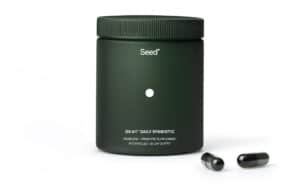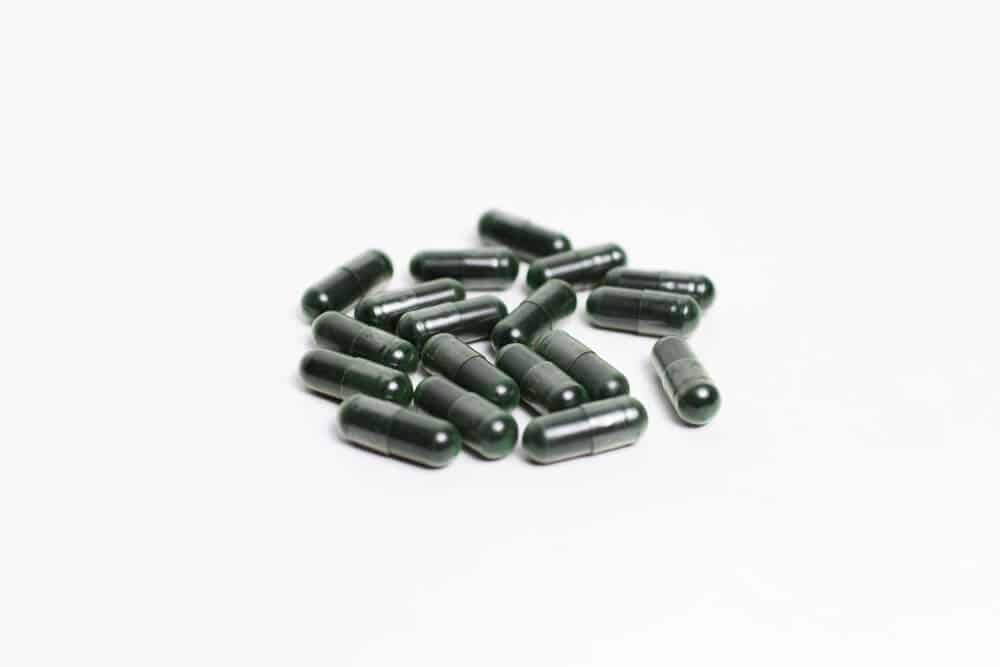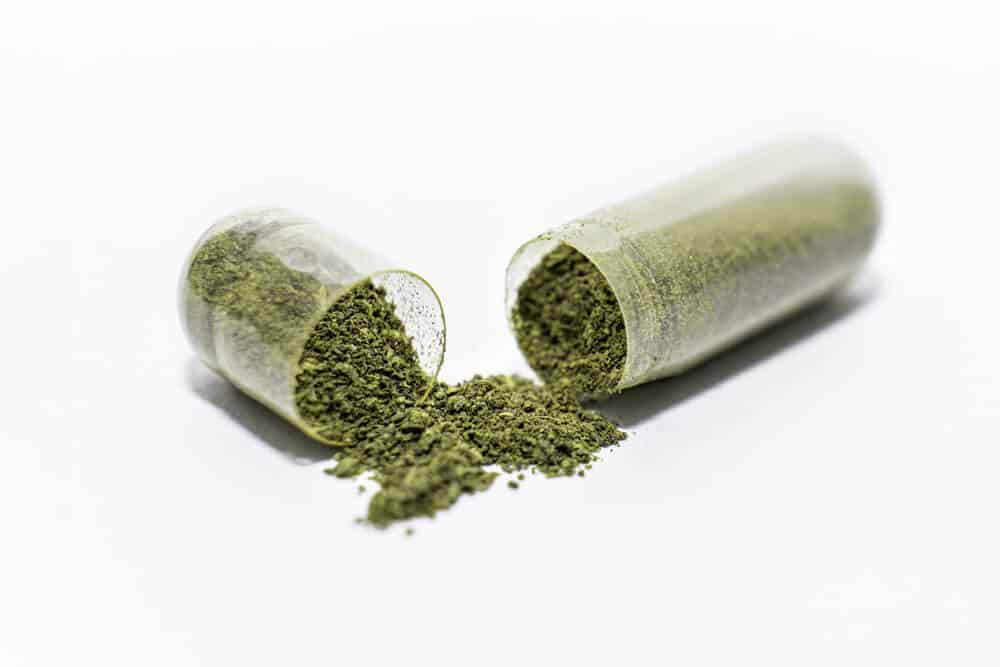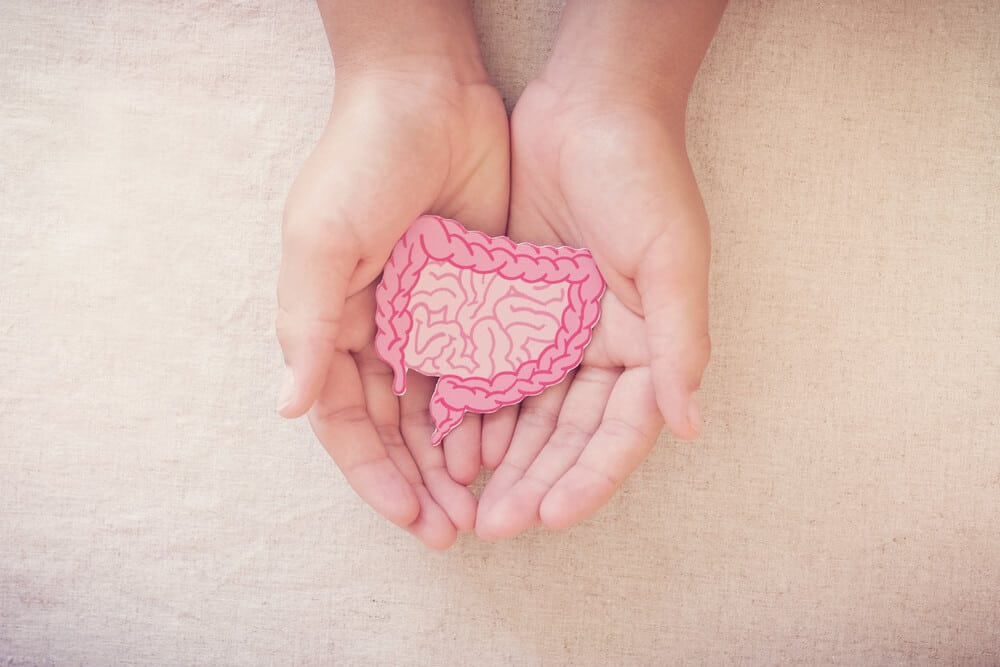Seed Probiotic Review - 11 Things You Need to Know
Through special capsule technology and proprietary probiotic formula, Seed Probiotic claims their DS-01 Daily Synbiotic supplement can improve digestive, cardiovascular, and dermatological health. The product also claims it can reduce inflammation while supplying the body with the micronutrients it needs.
What ingredients can be found in Seed Probiotic? Are there any research studies backing up these claims? To find out more about this probiotic product, our team took a closer look at the formula research, ingredients, potential side effects, and so much more. If you are ready to learn more about the DS-01 Daily Synbiotic, make sure to keep reading to the bottom line!
Seed Probiotic can be purchased through their Official Site.
What is Seed Probiotic?
Seed Probiotics, notably known for their DS-01 Synbiotic supplement, claim to offer a distinctive approach to probiotic supplementation. Marketed as a 24-strain formulation, the product emphasizes a scientifically tested synbiotic design. According to Seed, the supplement aims to influence various aspects of health, including digestive health, gut barrier integrity, and gut immune function through the combined action of probiotics and prebiotics.
The key feature of Seed Probiotic’s DS-01 Synbiotic lies in its purported advanced delivery system. Utilizing ViaCap® technology, the capsule-in-capsule design aims to shield probiotics from the harsh conditions of stomach acid and digestive enzymes. Seed asserts that this innovative design, with an outer capsule acting as a barrier against oxygen, moisture, and heat, eliminates the necessity for refrigeration and ensures a 100% deliverability rate to the colon.
Seed Probiotics extends its claims beyond conventional digestive benefits, asserting that their product supports overall well-being. The manufacturer highlights the dual casing system, with the probiotic blend enclosed within a prebiotic casing sourced from Indian pomegranate. Seed suggests that this design not only safeguards the probiotics during storage and digestion but also contributes to the product’s uniqueness in the market.
Before diving deeper into Seed Probiotic, let’s see what the research has to say about a few of its ingredients:
- Nutrients: This study found that Bifidobacterium breve could have antimicrobial activity while supporting the immune system.
- International Journal of Food Sciences and Nutrition: According to this study, Bifidobacterium longum had protective effects on the skin in animals.
- Microorganisms: This study found that Lactiplantibacillus plantarum had multiple health benefits and contained anti-inflammatory, antioxidative, and antimicrobial activity.
Seed Probiotic Competitors
| Product | Review | |
|---|---|---|
| Plexus ProBio5 | read | |
| Noom | read |
Who Makes The Seed Probiotic?
Seed Probiotic, also known as Seed Health, is the manufacturer behind the DS-01 Synbiotic supplement. Positioned as a microbial sciences company, Seed Health focuses on the applications of microbes for human and planetary health. The company collaborates with leading academic researchers to drive breakthroughs in microbial sciences, covering a range of innovations from therapeutics to consumer health solutions and environmental applications. All consumer probiotic innovations are brought to market under the Seed® brand.
Co-founded by Ara Katz and Raja Dhir, Seed Probiotic is led by individuals with diverse expertise. Ara Katz, a serial entrepreneur, has a background at the intersection of technology, media, and design. Inspired by her pregnancy and breastfeeding experience, Katz embarked on a mission to explore the impact of microbes on health. Raja Dhir, a life sciences entrepreneur, specializes in translating scientific research and leads various aspects of Seed’s operations, including research and development, academic collaborations, manufacturing, technology development, and intellectual property strategy.
Seed Probiotic’s offerings are not limited to consumer products; the company operates Seed Labs, a research facility where scientists investigate the benefits of probiotics in various global contexts, such as honey bees and coral. According to the official website, Seed Probiotic boasts a distinguished Scientific Advisory Board, comprising specialists in relevant fields. Founded in Los Angeles in 2015, Seed Health, Inc. initially focused on using bacteria to enhance human and ecological health, later expanding to offer two products: DS-01 and PDS-08, the latter available in powdered sachet form. The company sells both products on a 30-day, refillable supply model. It is important to note that these details are based on the claims of the manufacturer, and individual experiences may vary.
Seed Probiotic Customer Service
Individuals can the company at 844-646-3586 or email them at care@seed.com. Furthermore, customers can reach out to them on social media. They are located at 2100 Abbot Kinney Blvd Unit G Venice, CA 90291.
Seed Probiotic and the Better Business Bureau (BBB)
The BBB page for Seed Health shows a rating of B+. There have been no customer reviews, but 12 complaints have been closed in the past three years and 6 in the last 12 months.
Scroll below for one of the best products we’ve seen over the last year.
Seed Probiotic Claims
Seed Health claims it has taken a new approach to probiotics to create a more efficient product DS-01. The company paired the probiotic with a prebiotic, which they say created a much more efficient product than other supplement pills.
According to Seed, prebiotics is designed to keep helpful microbes alive. When prebiotics and probiotics are combined, they tend to enhance the other’s effect.
The DS-01 probiotic claims to provide whole-body health through its premium blend of prebiotics and probiotics.
Seed Probiotic Ingredients
The ingredients in DS-01 from Seed Probiotic are found in multiple blends:
Digestive Health, Gut Immunity, and Gut Barrier Integrity Blend
The ingredients found in this blend include:
- Bifidobacterium longum
- Bifidobacterium infantis
- Bifidobacterium breve
- Bifidobacterium lactis
- Limosilactobacillus reuteri
- Limosilactobacillus fermentum
- Lactobacillus crispatus
- Lacticaseibacillus rhamnosus
- Lactiplantibacillus plantarum
- Lacticaseibacillus casei
Dermatological Health Blend
This dermatological blend contains:
- Bifidobacterium lactis
- Bifidobacterium longum
- Ligilactobacillus salivarius
- Lacticaseibacillus casei
Cardiovascular Health Blend
This heart blend contains:
- Bifidobacterium lactis
- Lactiplantibacillus plantarum
Micronutrient Synthesis Probiotic Blend
The ingredients in this blend include:
- Limosilactobacillus reuteri
- Bifidobacterium adolescentis
Microbiota-Accessible Polyphenolic Precursors
This contains Indian Pomegranate (whole fruit)
Other Ingredients
The other ingredients include:
- Chlorophyllin (outer capsule composition)
- Hypromellose, fermented gellan gum, water (inner capsule composition)
- Organic rice fiber and organic rice extract blend
Does Seed Probiotic Work?
Currently, Seed Probiotic is working on clinical trials for its probiotic supplement.
According to ClinicalTrials.gov, Seed Health is testing its DS-01 supplement to see if it can help rebuild gut microbiota after antimicrobial therapies. Another study posted through ClinicalTrials.gov is testing the effects of the DS-01 synbiotic supplement from Seed Health for its effects on irritable bowel syndrome (IBS).
Seed Health is also currently sponsoring a study testing a children’s synbiotic supplement called PDS-08, according to ClinicalTrials.gov.
There have been some studies on the effectiveness of synbiotics and multi-strain probiotics as well.
According to Nutrients, multi-strain probiotics may be useful for reducing diarrhea in individuals with IBS. Another study in Nutrients found that synbiotics may be able to boost immune health and restore gut microbiota health.
Seed Probiotic and Weight Loss
There is some research supporting the connection between the gut microbiome and body weight. One study published in the Journal of Agricultural and Food Chemistry was conducted on the effect of grape seed flour, a prebiotic, and lactic acid bacteria, a probiotic. The study shows that the combination of the two affected weight gain.
More research published in the Journal of Translational Medicine found that muti-strain probiotics could lead to improved insulin resistance and slightly reduced abdominal adiposity, though no significant changes in weight or BMI were seen.
Seed Probiotic Side Effects
Seed suggests that there may be some moderate side effects when using their products, which include upset stomach issues, gas or other intestinal difficulties, and increased burping.
How to Use Seed Probiotic
Users should take 1 capsule each day, for the first three days. After that, start taking 2 pills a day. The pills must be taken simultaneously. It’s ideal to take the pills on an empty stomach, but in case of any discomfort, it’s possible to take them immediately after a meal.
The capsules must be stored in a cool, dry place and are good for up to 18 months.
Cost and Where to Buy
As of right now, the subscription to Seed probiotic is $49.99 a month. It can be bought on Seed’s website.
Pros and Cons
Pros
- Seed Probiotic is working on getting published through clinical trials.
- Multiple studies support the claim that multi-strain probiotics are beneficial to gastrointestinal health.
- Many of the reviews for the supplement are positive.
Cons
- Some customers have complained of side effects while using the supplement.
Bottom Line on Seed Probiotic Results
When our team started researching Seed Probiotic, they were surprised. Seed Health is currently working on multiple clinical studies to prove it can help improve gut health in a number of ways. Additionally, there are plenty of studies backing up the ingredient’s ability to improve digestive health, boost immunity, and even reduce inflammation. However, some users experienced some negative side effects when using DS-01, which is something to keep in mind.
Improving your health requires a lot of different practices, and adding in a healthy probiotic is just the start. That’s why so many people are turning to Noom to help guide them toward a healthier lifestyle.
Color-coded food logging, community support, 1:1 coaching sessions, custom meal plans, and personalized educational lessons are just a few of the tools available from Noom. These tools help guide users toward healthier practices that lead to improved wellness and weight loss. Plus, the system is backed by multiple clinical studies and tons of customer testimonials, which is a huge bonus. If you are ready to try this program today, make sure to check out their free trial offer, available for a limited time!
Learn More About Noom »





I have gained so much weight
I am not sure if it works. The study shows that the combination of the two affected weight gain.
I have been feel crazy craving and appetite went up crazy . Definitely think before start . After 4 months subscription I decided to stop for 2 months and see what happens . Now is my 3 day when I am not taking a probiotic. And feel Amazing . And I lost some weight . I am not sure if it’s good .
Anonymous
It’s difficult to cancel a subscription to Seed once it’s started. They should make it easier.